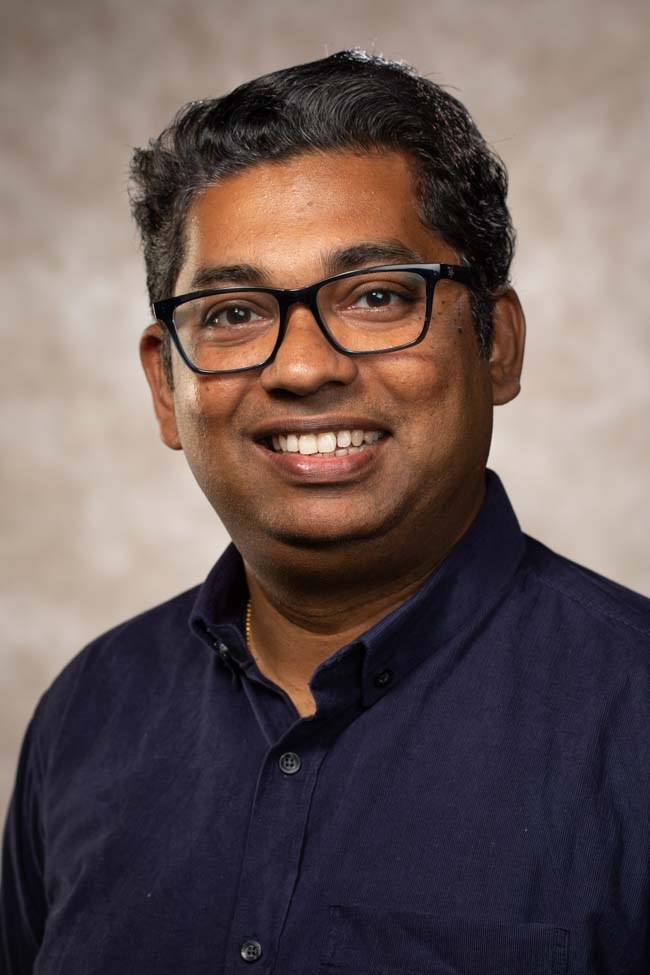WATCH: Rupesh Kariyat – Protecting Crops from Insects | Behind the Discovery
By Paden Johnson – Jan. 19, 2024
Rupesh Kariyat has been intrigued by insects since he was a kid. Now he’s an associate professor of crop entomology seeking sustainable pest management strategies to keep our crops from becoming bug food.
Rupesh conducts research with the Arkansas Agricultural Experiment Station to understand how plants naturally defend against insect herbivores. He also leads outreach efforts through the Cooperative Extension Service and teaches courses through the Dale Bumpers College of Agricultural, Food and Life Sciences at the University of Arkansas.
Meet the Researcher
 Rupesh Kariyat
Rupesh Kariyat
Associate Professor
rkariyat@uark.edu
To learn more about the Division of Agriculture research, visit the Arkansas Agricultural Experiment Station website. Follow us on 𝕏 at @ArkAgResearch, subscribe to the Food, Farms and Forests podcast and sign up for our monthly newsletter, the Arkansas Agricultural Research Report. To learn more about the Division of Agriculture, visit uada.edu. Follow us on 𝕏 at @AgInArk. To learn about extension programs in Arkansas, contact your local Cooperative Extension Service agent or visit uaex.uada.edu.
About the Division of Agriculture
The University of Arkansas System Division of Agriculture’s mission is to strengthen agriculture, communities, and families by connecting trusted research to the adoption of best practices. Through the Agricultural Experiment Station and the Cooperative Extension Service, the Division of Agriculture conducts research and extension work within the nation’s historic land grant education system.
The Division of Agriculture is one of 20 entities within the University of Arkansas System. It has offices in all 75 counties in Arkansas and faculty on three campuses.
Pursuant to 7 CFR § 15.3, the University of Arkansas System Division of Agriculture offers all its Extension and Research programs and services (including employment) without regard to race, color, sex, national origin, religion, age, disability, marital or veteran status, genetic information, sexual preference, pregnancy or any other legally protected status, and is an equal opportunity institution.





